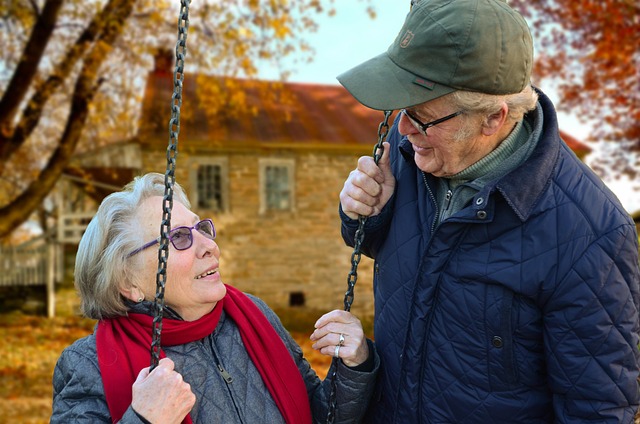In Oregon, grandparental rights are protected under state law, ensuring grandparents have a legal say in their grandchild's life. The Oregon Revised Statutes (ORS) grant reasonable visitation and involvement, while advocacy groups support grandparents facing challenges. Robust legal protections are crucial to maintain family stability, especially during at-risk or removed situations. Grandparents often face hurdles like establishing claims, navigating systems, and financial barriers, emphasizing the need for enhanced legal protection. Advocacy groups lobby for stronger laws and public awareness, with successful case studies showcasing the impact of their efforts. Resources like the Oregon Grandparents Association (OGA) offer support, empowering grandparents to protect and maintain their familial connections.
In Oregon, grandparental rights advocacy has become a vital issue, as families evolve and complex situations arise. Understanding the legal framework surrounding these rights is crucial for ensuring the well-being of grandparents and their connections with grandchildren. This article explores the significance of legal protection for grandparents, delves into common challenges they face when seeking rights, and highlights effective advocacy strategies for restoration. We present successful case studies from Oregon, offer resources, and provide support for grandparents navigating these complex dynamics.
- Understanding Grandparental Rights in Oregon: Legal Framework
- The Importance of Legal Protection for Grandparents
- Common Challenges Faced by Grandparents Seeking Rights
- Advocacy Strategies for Grandparental Rights Restoration
- Case Studies: Successful Grandparent Advocacy in Oregon
- Resources and Support for Grandparents in Oregon
Understanding Grandparental Rights in Oregon: Legal Framework

In Oregon, grandparental rights are protected under state law, offering legal framework to preserve and maintain relationships between grandparents and their grandchildren. The Oregon Revised Statutes (ORS) delineate specific provisions that ensure grandparents have the right to reasonable visitation and involvement in their grandchild’s life. These laws recognize the significant role grandparents often play in a child’s upbringing and seek to safeguard these connections.
Grandparental rights advocacy groups have been instrumental in promoting awareness about legal protections available to grandparents. They emphasize the importance of maintaining family bonds, providing support for grandparents facing challenges in gaining or maintaining access to their grandchildren. Through education and representation, these groups strive to ensure that Oregon’s legal framework effectively safeguards grandparental rights.
The Importance of Legal Protection for Grandparents

In Oregon, as in many places across the nation, the role of grandparents in their grandchildren’s lives is evolving and expanding. However, without adequate legal protection, grandparental rights can be easily overlooked or even stripped away during family court proceedings. This is particularly concerning when a grandchild finds themselves in a situation where they are at risk or removed from their primary caregiving parent. Legal protections for grandparental rights ensure that grandparents have a formal say and significant involvement in the lives of their grandchildren, offering stability and continuity within the family unit.
Grandparental rights legal protection is vital to ensuring that these important relationships are preserved. It safeguards against arbitrary decisions that might sever ties between grandparents and grandchildren without just cause. By establishing clear guidelines and processes for grandparental visitation, custody, and access, Oregon’s laws can foster a healthier, more supportive family environment. This, in turn, contributes to the overall well-being of all involved parties.
Common Challenges Faced by Grandparents Seeking Rights

Grandparents seeking legal recognition and access to their grandchildren often face significant challenges in Oregon. One of the primary hurdles is establishing a valid claim for grandparental rights, which requires proving a meaningful relationship with the child and a legitimate reason for involvement. Many grandparents struggle to navigate the complex family law system, where cases are often decided based on what is in the child’s best interest, leaving little room for their specific needs and desires.
Additionally, time constraints and financial barriers can impede their efforts. Grandparents may not have the legal resources or representation to effectively advocate for their rights, especially if they are elderly or face economic hardships. The process often involves extensive paperwork, court appearances, and potential conflict with the child’s parents, all of which can be emotionally taxing and financially draining. These challenges underscore the need for enhanced legal protections for grandparental rights in Oregon, ensuring that grandparents have access to the resources and support necessary to protect their bonds with their grandchildren.
Advocacy Strategies for Grandparental Rights Restoration

In Oregon, advocates for grandparental rights focus on legislative and public awareness strategies to restore and protect these important relationships. One key approach is lobbying state legislators to introduce or support bills that enhance grandparental legal protection. This involves presenting compelling data and personal stories to build political will and gain bipartisan support. Public education campaigns play a vital role, too; raising awareness about the value of grandparent-grandchild connections can foster community support for these efforts.
These advocacy strategies aim to update and strengthen laws governing grandparental rights, ensuring that grandparents have legal avenues to seek visitation, custody, or joint parenting arrangements when family circumstances permit. By combining legislative action with targeted outreach, advocates strive to create a more supportive environment for grandparents seeking to maintain meaningful roles in their grandchildren’s lives.
Case Studies: Successful Grandparent Advocacy in Oregon

In Oregon, numerous case studies highlight successful grandparent advocacy efforts, showcasing the power of legal protection for grandparental rights. One notable example involves a family where grandparents actively participated in court proceedings to gain visitation rights after their grandchild’s parents divorced. With robust legal representation and a strong showing of their significant role in the child’s life, they were granted regular and substantial visitation, ensuring a continuous and healthy bond with their grandchild.
Another successful case involved grandparents who sought legal protection against potential barriers to seeing their grandchild, such as restrictive custody arrangements. Through strategic legal maneuvering, they secured joint custody rights, allowing for shared decision-making responsibilities and frequent time with the child. These victories not only strengthen grandparental bonds but also emphasize the importance of legal advocacy in protecting these invaluable family relationships.
Resources and Support for Grandparents in Oregon

In Oregon, grandparents seeking grandparental rights legal protection can find a range of resources and support systems to help them navigate their unique legal landscape. Organizations like the Oregon Grandparents Association (OGA) offer advocacy services, educational workshops, and networking opportunities for grandparents striving to maintain or regain meaningful relationships with their grandchildren. The OGA provides invaluable guidance on legal procedures, court processes, and available grandparental rights.
Local community centers, libraries, and legal aid organizations also host informational sessions and referrals to social services that cater to the needs of grandparents. These initiatives aim to empower them by offering practical assistance, emotional support, and a sense of community. With access to these resources, Oregon grandparents can better understand their grandparental rights and take proactive steps to protect their familial connections.






